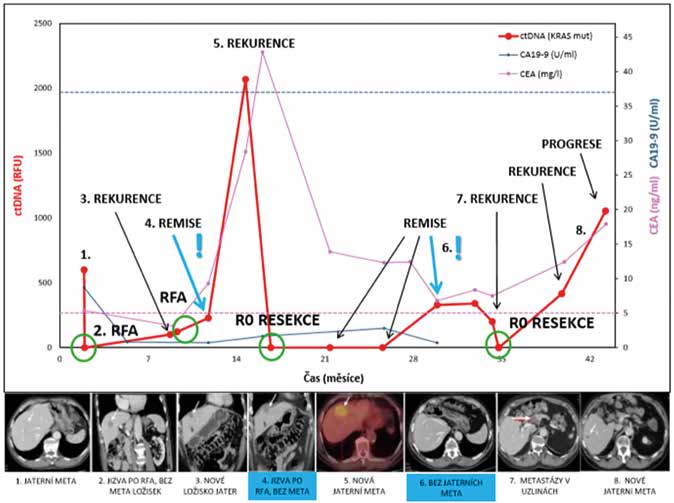Abstract
Introduction: Colorectal cancer (CRC) is the third most common malignant disease worldwide. The stage of the disease at the time of diagnosis and the capture of an early recurrence have a direct impact on long-term survival. Existing control screening methods often do not reflect real-time metastatic disease. In patients with detectable circulating tumor DNA (ctDNA), liquid biopsy can be an effective monitoring tool.
Case report: In 2012, we performed sigmoid resection in a 57 years old patient for advanced CRC. The follow-up assessments included: blood samples for CA 19-9 and CEA, endoscopy and imaging methods. We also sampled peripheral blood to determine the level of ctDNA. Its value corresponded to the development of the disease throughout the period. Twice it outperformed imaging methods. CEA showed some degree of unreliability, especially after prolonged illness. CA 19-9 was in the normal range at all times.
Conclusion: Circulating tumor DNA is an effective tool in the diagnosis of recurrent metastatic CRC. In patients with detectable ctDNA, its level correlates with the tumoral mass in real time. It has a predictive value in monitoring the treatment response. Its implementation in the follow-up of patients with CRC may have an impact on the choice of treatment strategy and consequently on patient survival.

